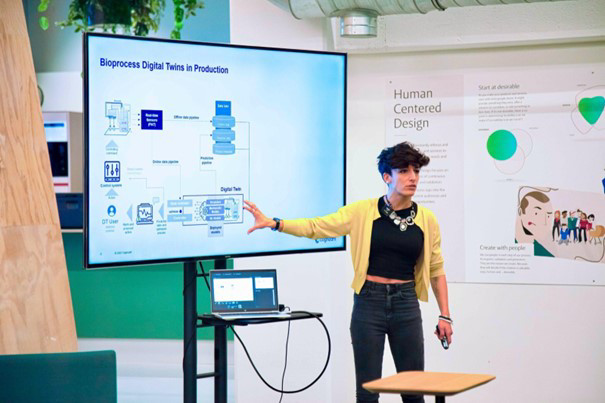Again, and again, and again it is all about data and its consistency. What does this mean for the use of Gen AI?
As for classical AI, models can be good as good is the quality of the data you feed in. LLMs are prompted with different strategies to best feed and update dynamic context information through retrieval systems and cognitive searches. We build multi-agent solutions for our clients to orchestrate LLM calls in cognitive architectures that resemble the decision-making process humans would follow to retrieve and analyze data. Technical agents are meant to query databases or route analytics tasks to other classical AI systems in the backend, while interaction agents communicate in natural language to enable personalized responses to user’s business questions.
Data platforms and knowledge databases are prerequisite to start implementing any data-driven solution. Whether it uses AI or GenAI will depend on the application and business problem to solve. Lately, there is a tendency to discard all what AI and analytics have been providing so far in favor of Gen AI. That’s a wrong mindset, every technology comes with strengths and limitations. We rather believe a proper assessment of the use case and user journey must be conducted towards the design of intelligent systems. Any analytics, classical AI, or generative AI can be leveraged as long as it is effective towards business value creation, explainable, transparent, responsible, ethical, and compliant to company standards.
Another big topic we need to consider from the very beginning is, how to manage consent.
Yes, data use is central to the Gen AI debate. LLMs need vast amounts of data, and this data helps the model learn and generate new content. But where does this data come from? And when we fine-tune an LLM with company and personal data, where are they exposed to?
Gen AI must be used responsibly, but democratization of this technology does not help its governance.
In one hand, we are glad and proactive towards Responsible AI and Gen AI task forces being are in place, as the EU AI Act. On the other hand, we know technology goes faster than regulatory frameworks. Our current mission at Cognizant is to drive the development of Gen AI solutions for our clients in a way it tackles compliance aspects by looking one step ahead of the current regulatory landscape towards preventing future pitfalls.
Our strategic partnership with cloud providers ensures we have a first mover advantage in defining such best practice and responsible architectures. The global Bluebolt GenAI Ideation Challenge we won in 2023 with our multidisciplinary team AIA and DX in the BeNeLux is an example of how on ground experience started by beta-testing Google Vertex AI features on banking infobots turned into a framework for responsible development of GenAI-based applications, which of course goes “beyond LLMs” (that’s the name with which it became famous) to build human-centric GenAI solutions through dynamic context (i.e. data) curation.
For more information please visit our German gen ai services, the glossary page, our rewire for ai and the gen ai handbook, or our English versions: gen ai services, glossary page, rewire for ai, gen ai handbook.
















)